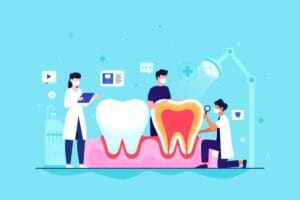Do you want to lose weight but can’t seem to find the motivation to stick to a workout routine? Have you ever tried intermittent fasting? Studies show that intermittent fasting has helped lots of people do exactly that. The best part is that you don’t need to follow a workout plan to see results. What makes this diet so popular is that there are no restrictions on your choice of food, and your success is not dependent upon what you eat, rather, it is all about when you eat.
While this eating method is not for everyone, including those with certain medical conditions like diabetes or eating disorders, it can be an effective weight loss tool if done properly. Though there are no restrictions to what you are allowed to eat with this diet, you should still be mindful of your food choices. The more nutritious your food the better the results you’ll get.
There are, in fact, many different intermittent fasting methods, but the most common is the time-restricted eating method, specifically the 16/8 method. This version entails fasting for 16 hours and eating only during the remaining 8 hours. Typically, most people who follow this method will begin their fast at 8:00 PM after their last meal and end it at noon the following day. This means skipping an early morning breakfast and opting for only two meals a day. This may also include snacks between lunch and dinner.
No matter what fasting method you choose, you should know that the types of foods you choose to eat during your mealtime do have an effect on the results you achieve through this process. You should still try to avoid eating too many calorie-dense foods during your eating window and opt for nutritious foods that can keep you satiated for longer. So, what might those foods be? Let’s talk about specific foods you should be including in your diet, liquids you can drink during your fasting times, and foods you should try to avoid.

What Foods Should You Be Eating While Intermittent Fasting?
It’s true that intermittent fasting is one of the only diets out there that doesn’t have any food restrictions, and this is great for most people as you don’t need to make any significant or inconvenient changes to your diet, But that doesn’t mean that you should just eat junk food during your eating window. It’s still important to eat healthy, no matter what method you choose to follow. So, what foods should you try to include in your diet?
Here are the recommended foods to include in your diet when intermittent fasting:
- Avocados – These wonderful little fruits – yes, they are fruits- have an extremely high amount of unsaturated fat which will keep you fuller for longer. Research has shown that unsaturated fats cause your body to communicate to your metabolic processes that you have enough food even when you don’t feel full. It also prolongs this period of fullness for at least an additional hour or possibly more depending on how much you ate.
- Fish and Seafood – this food group is high in both healthy fats and protein. This is another way to stay fuller for longer as the higher the protein content, the more satiated you will be. Additionally, both fish and other kinds of seafood contain vitamin D which is another vital nutrient many of us don’t get enough of, particularly in the winter months when we don’t get as much sun.
- Vegetables – getting enough veggies in your diet is something we should all strive for regardless of whether you’re intermittent fasting or not. Veggies have prebiotics as well as dietary fibers that promote a healthy gut. Fiber can also help you feel fuller for longer which can help curb unwanted cravings.
- Fruit – fruit is also a good choice as it is often nutrient-rich and serves as a great substitute for processed sugary snacks. Just be sure that you are choosing fruits with lower amounts of sugar.
- Potatoes – this one may have come as a surprise to you, but contrary to popular belief, potatoes are not inherently bad for you. In fact, they have been found to be one of the most filling options available. The caveat though, is that french fries and other variations that are boiled in oil are not recommended.
What About Liquids?
So, we talked about the different foods you can eat while intermittent fasting, but what about drinks? Can you still have your morning coffee even if you’re still in your fasting window? When it comes to drinking liquids, what doesn’t break a fast?
Here are the liquids you can drink while fasting:
- Water
- Black Coffee
- Plain Unsweetened Teas
- Seltzers
Water is obviously calorie-free, and hydration is very important for overall health. An added benefit of drinking water is that it helps to curb appetite which can be helpful if you are trying to stay within a particular caloric intake. Just be sure that your water contains trace minerals with electrolytes as plain filtered water that has been purified could end up flushing out your electrolytes and leave you even thirstier.
Foods You Should Be Avoiding
As we mentioned previously, it’s important to try to eat a healthy diet while intermittent fasting as this will help you to achieve great results. This means avoiding certain unhealthy foods that can be a detriment to your weight loss goals.
A few of these include:
- Highly Processed Meats
- Refined Sugars or Foods with Naturally High Sugar Content
- Trans Fats
- Refined Starch
- Artificial Flavors or Colors
Conclusion
Intermittent fasting can be a great option for those without certain medical conditions to lose weight. There are many different methods out there, but the most common is the 16/8 method. When on a fasting diet you should try to eat a healthy diet with plenty of nutrients. Some recommended options include avocados, fish and seafood, vegetables, fruit, and potatoes.
Additionally, you can also drink water, black coffee, unsweetened tea, and seltzer water while fasting. It’s best to stay away from unhealthy foods like processed meat, refined sugar, trans fat, refined starch, and flavors or colors that aren’t real.











